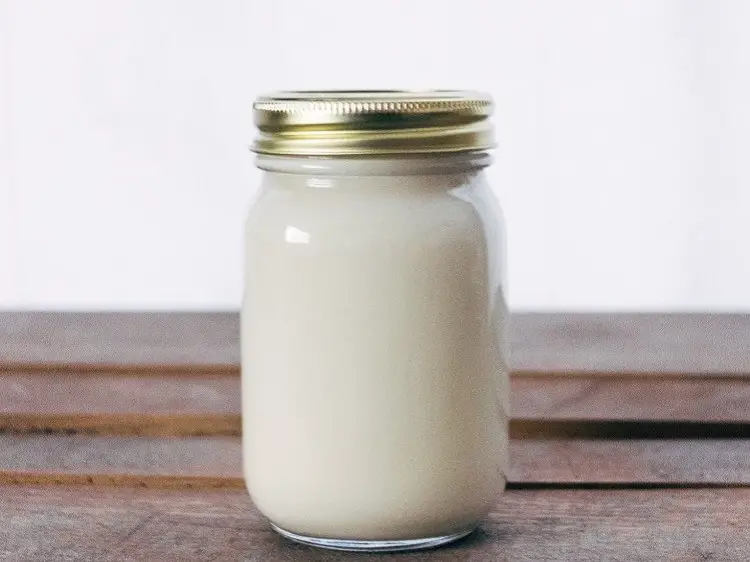Have you ever questioned the taste or smell of your breast milk? Sometimes, it tastes salty, and you ask yourself, “why does my breast milk taste salty?” As you may know, many mothers go through this, don’t worry, you’re not alone.
Mother’s milk is the best food for babies as it contains nutrients needed for the baby’s growth and development.
As a breastfeeding mom, knowing those things that factor into the taste or smell of your breast milk is something you must do, regardless of whether you are constantly pumping or saving up an emergency stash.
This article discusses what breast milk tastes like, why it tastes salty, and factors that can affect breast milk taste. Read On
Why Does My Breast Milk Taste Salty?
Breast milk may taste salty due to its high sodium and chloride content. If your baby is breastfeeding, it may fuss due to this change in the taste of your milk. If your baby is tube fed, they will not observe any difference.
Read Also: Why Your Thawed Breast Milk Looks Grainy
What Does Breast Milk Taste Like?
Like any other food, breast milk can taste different to different people. Breast milk taste is generally sweet and creamy with a pleasant flavor.
However, when it comes to which flavors you like and don’t like, every mother has a different experience.
Taste is developed over time, based on your genetics, culture, and the foods you’re exposed to throughout your life.
Why Does My Breast Milk Sweet And Creamy?
Breast milk is enriched with milk sugar lactose. Although lactose is not the sweetest class of sugar, when there is a lot of lactose present, the sweetness is much more significant.
Because lactose is one of the main components in breast milk, it appears in high concentrations, making your breast milk taste sweet.
Breast milk also contains fat. As breast milk starts flowing through the breast, it has less fat. The amount of fat in milk decides its creaminess.
It may also look thin and watery. As breast milk flows through, it becomes higher in fat and looks much creamier.
Read Also: Breast Milk Smells Like Vinegar (Explained)
What Gives Breast Milk Its Taste
Aside from being sweet and creamy, breast milk is made up of the flavors from the foods you consume every day.
When you eat foods rich in fruits and vegetables, you expose your baby to the tastes of these healthy foods.
As your breastfed baby grows and starts consuming solid foods, experts believe they will more readily accept the foods you have already exposed them to through breast milk.
Through your breast milk, your child can develop a taste for many of the foods that you enjoy, even garlic, spicy foods, or other cultural dishes.
Factors That Can Affect The Taste Of Breast Milk
Several factors can affect the taste of your breast milk which may affect your child. Some babies may not observe or notice taste variations, while others may nurse less, go on a nursing strike, or even be self-weaning.
By understanding some factors that can alter the taste of your breast milk, you might be able to keep your baby breastfeeding longer.
Mastitis
Mastitis is a breast infection that develops in breast tissue and causes your breast milk to have a strong, salty taste.
If you believe you have mastitis, it’s OK to keep breastfeeding, but your baby may refuse to feed on the side of the breast with infection.
Since you may need to take antibiotics to treat the disease, do not forget to consult your doctor.
Hormones
A change in the levels of hormones in your body from the return of your period or a new pregnancy may affect the taste of your milk.
Breastfeeding a baby is usually safe if you have your period. It’s safe to continue breastfeeding if you become pregnant again if your pregnancy is life-threatening.
If you decide to keep breastfeeding, continue to offer your child the breast.
Alcohol
Drinking alcohol can affect the way breast milk tastes. It takes approximately two hours for each glass of alcoholic drink you consume to leave your body and breast milk.
The longer you wait to breastfeed after you have an alcoholic drink, the less alcohol will be in your breast milk to alter the taste.
Read Also: What Happens If Baby Drink Breast Milk With Alcohol?
Exercise
The accumulation of lactic acid in your body and the saltiness of perspiration on your breasts from tedious exercise can change the taste of your breast milk.
Maintain a light or moderate workout to minimize the effect on your breast milk. You can also wash your breasts to remove the salty sweat before you nurse your baby.
Medications
Certain medications can affect the taste of your breast milk. If you begin a new prescription and observe that your child is not breastfeeding well enough, that might be the cause. Consult your doctor immediately if you think this is an issue.
Frozen Breast Milk
When you defrost breast milk collected and stored in the refrigerator, it usually has a soapy odor and taste. It’s still safe to give your baby, but she may not like the different flavor and refuse it.
Read Also: Why Does Milk Turn Yellow When Frozen? Find Out!
Smoking
Research has shown that breast milk made by a mother after smoking cigarettes will take on the smell and flavor of the smoke.
If you like to smoke, have your cigarette immediately after you finish feeding your baby, and try not to smoke for at least two hours before breastfeeding your baby again to keep the smell and taste of the smoke on low.
Body Products
Any creams, soaps, ointments, perfumes, oils, or body lotions on your breasts can add a different taste to your breast milk as you feed your baby.
If you apply body products on or near your breasts, wash your breasts well before breastfeeding your baby.
Tasting Your Breast Milk

If you’re worried about the taste of your breast milk, or you want to know how it will taste, apply a tiny amount on your wrist and taste it.
Breast milk is a natural, healthy food that can’t hurt you. There is absolutely nothing wrong or disgusting about tasting your breast milk.
Can Your Partner Try Your Breast Milk?
Sometimes your husband may be curious and want to taste your breast milk. It is OK to let him try it, too.
If your husband wants to try it in a cup, be sure you don’t have any health complications you could pass on through your milk.
Also, if your husband wants to try the milk from your breast, ensure they do not have any health complications like thrush or herpes that could transfer to your skin and affect your baby’s health.
Tasting Someone Else’s Breast Milk
Typically, It’s OK to try someone else breast milk if you are sure you have their health history and understand the risk involved. It is best to be mindful always because it can be harmful to taste the milk from another person’s breast.
Breast milk is a body fluid. Hence, it is possible to get infected with an infectious disease, including HIV, from drinking someone else’s breast milk.
Read Also: 8 Foods That Make Breast Milk Taste Good
Can Breast Milk Go Bad While in the Breast?
While this is an entirely reasonable question, especially if your feeding routine is off and you haven’t been able to breastfeed in a while, your breasts are perfect regulators.
According to the New Jersey Department of Health, if your body is producing milk, there is no way for it to spoil in the breast.
This is because breast milk is not a lifeless product of your body. Breast milk is a living organism, unlike the pasteurized cow’s milk we buy at the store.
Heather ONeal, a certified nurse-midwife and lactation consultant in West Virginia, tells romper that the living constituents in breast milk are constantly changing based on your baby’s needs and the lactating parent’s microbiome.
These unique properties serve to protect breast milk and boost the health of the infant eating the milk.
Furthermore, the good bacteria in the breast milk will work to kill harmful bacteria within the breast and outside of the breast in the form of pumped milk.
Freshly pumped breast milk can sit at room temperature for six to eight hours before any possibility of it going bad. Amazing!
Related Posts:
- Why Your Breast Milk Smells Like Eggs
- 19 Useful Ideas On What To Do With Leftover Breast Milk
- Why Is My Breast Milk So Watery (4 Things You Can Do)
- Baby Smells Like Cheese (Explained)
Conclusion
I hope this article answers your question, “Why does my breast milk taste salty?” As stated earlier, certain things can affect your breast milk taste and make it taste salty or sour.
It is essential to consider these factors while nursing your baby because they can affect the taste of your breast milk, and if your baby tastes something they don’t like, they may find a reason to go on a nursing strike.
Let us know if you have any questions or some of your experiences with breastfeeding. We would love to hear it.

